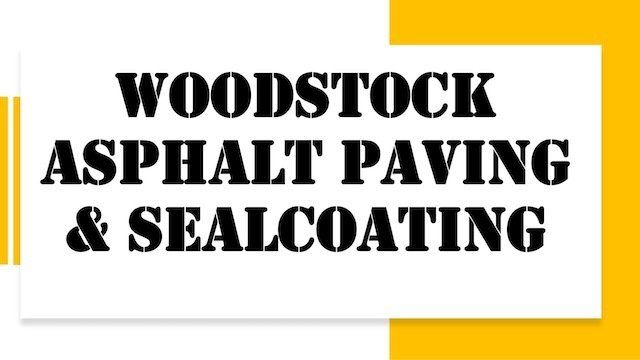Asphalt Resurfacing
What is Asphalt Resurfacing?
Asphalt resurfacing is the process of placing new asphalt on top of an old asphalt or concrete surface. This is one of the greatest ways to keep a driveway or pavement looking good and lasting a long time. When compared to replacement or Asphalt Restoration, resurfacing existing asphalt is unquestionably a more cost-effective solution.
If your driveway has difficulties like these, consider asphalt resurfacing.
- Staining and mold
- Due to excessive traffic, there are a few small cracks.
- Sunlight or uneven shade causes discoloration in the asphalt surface.
- Due to surface dips, there is a problem with water pooling (Pooled water can further damage the lower layers of the asphalt)
It's also crucial to inspect the lower layers of an asphalt driveway for problems. Resurfacing using a new layer of asphalt on top of an already damaged one may not be successful.
Resurfacing normally involves adding 1-2 inches of asphalt to the surface and correcting structural issues.
Factors to consider before Asphalt Resurfacing
Take the following procedures to guarantee that you maintain and resurface your asphalt driveway as efficiently as possible:
#1. Inspecting the Asphalt Surface on a Regular Basis
Check your driveway or pathway for any damage or cracks on a regular basis. This will stop any damage from happening in the first place. Cracks or gaps are usually the earliest indicators of damage. As a result, keep an eye out for these warning signals to avoid major damage. Inspect the area straight away if there are weeds or plants growing through cracks. Then you can consider the best course of action for resolving these challenges.
#2. Asphalt Repair and Maintenance
When you notice an issue with the surface, you should take the appropriate actions to repair it. In the event of smaller portions, asphalt patching procedures might be used to quickly resolve the problem. However, if the surface is severely damaged, you should consider asphalt resurfacing. Getting in touch with a reputable asphalt business, like Woodstock Asphalt Paving & Sealcoating can assist you in determining the finest asphalt resurfacing technique.
#3. Select the Most Effective Asphalt Resurfacing Method
When done correctly, resurfacing may dramatically improve the safety and appearance of your driveway. Resurfacing can be done in a variety of ways. It is critical to select the one that best meets your requirements.
There are three basic types of asphalt resurfacing:
Overlay:
This approach takes the least amount of time to finish. Basically, it entails laying a new layer of asphalt on top of the old one. Depending on traffic and weather conditions, it can last up to 18 years. Thin overlays also save waste by using recyclable materials and hot mix asphalt. As a result, this is a better alternative for the environment.
Mill and Fill:
Using a milling machine, the current surface is removed and a new layer of asphalt is applied. After the layer has cooled down, it is safe to resume normal traffic.
Hot-in-Place:
An equipment is utilized to heat the asphalt in this procedure. After that, a rejuvenating agent is added to increase the viscosity of the recycled asphalt binder. After that, the fresh mix is applied to the area where the asphalt needs to be replaced. Furthermore, when there are only little cracks in the asphalt, this procedure is a good choice.
It's critical to create a maintenance routine once you've decided on the best option for resurfacing your driveway. As a result, the asphalt surface will remain in good condition.
So, these are some of the elements to consider while planning an asphalt resurfacing project. Give us a call and we'll be glad to discuss the best option for you and your asphalt project.
Call us today at 404-724-8034
Asphalt Resurfacing FAQ
Here are some additional questions that are typically asked about Asphalt Resurfacing
What is the Average Cost of Asphalt Resurfacing?
The cost of resurfacing a driveway is mostly determined by three factors:
- The site's size for resurfacing
- The number of repairs that are required
- The materials that were selected for the project
Furthermore, the total charge will be determined by the type of the work. Residential and commercial operations are frequently charged at varying rates by asphalt resurfacing companies. If you require additional services in addition to resurfacing, the rates will change appropriately.
The majority of providers base their fees on the square foot of resurfaced asphalt. There will be a minimum per square foot cost of resurfacing area and to get you the best cost available, please contact us for an free, accurate, no-obligation quote.
In any event, asphalt resurfacing is far less expensive than complete repair or concrete resurfacing.
How long does Asphalt Resurfacing last?
The following criteria will determine how long asphalt resurfacing lasts:
- Climate conditions
- The amount of traffic that passes through the resurfaced pavement or driveway.
- The new asphalt application's thickness
- The state of the sub-grade layer prior to completing the resurfacing
- The drainage system's quality
In general, an asphalt resurfacing job done correctly can increase the life of your driveway by 8 to 15 years.
How thick should Asphalt Resurfacing / Overlay be?
The thickness of the appropriate asphalt solution will be determined by the thickness of your pavement or driveway. A thick overlay is more acceptable if there are multiple cracks and water is seeping through. When there is only little surface damage and cracking, however, a thin overlay will suffice.
Furthermore, a traditional layer is at least 1.5 inches thick, whereas a thin overlay is typically less.
Because a home driveway receives little traffic, a thickness of 2.5 to 3 inches should suffice.
Call us today at 404-724-8034
How often should you Resurface your driveway?
The frequency at which asphalt is resurfaced is determined by a variety of factors. The weather is one of them. It is preferable to do resurfacing work during the summer months. Cold seams can result when resurfacing in cold weather, causing early deterioration. When the temperature is at or above 50 degrees Fahrenheit, resurfacing is most effective.
A well done asphalt resurfacing, on the other hand, can easily last up to 15 years. As a result, there shouldn't be any requirement for a new asphalt application until then. Furthermore, the new surface's longevity will be determined by how well it is maintained.
What steps should I take to maintain a newly resurfaced asphalt driveway?
As soon as the resurfacing is finished, you must adopt a driveway care plan. You should also begin budgeting for any unforeseen costs associated with the repair work. If cracks form after the winter, yearly crack filling and patching will aid in the maintenance of the asphalt surface. You should also get your catch basin and drainage system inspected once a year.
Should you reconstruct the entire parking lot or just overlay it?
This will be determined by the extent of the driveway damage. Asphalt resurfacing should be enough to fix the upper layer if the underlying asphalt core surface is good. Estimating the damage area of the entire parking lot is a decent rule of thumb. Reconstruction is a more cost-effective choice if the damage is in a 25-35 percent region of the parking lot owing to problems in the substandard layer.
We hope that the extensive information provided above will assist you in determining the optimum resurfacing strategy.
Woodstock Asphalt Paving & Sealcoating is your perfect choice for expert assistance on your specific project. All of your asphalt-related issues can be readily solved by a skilled team.
We proudly serve the following cities: Acworth, Alpharetta, Atlanta, Austell, Brookhaven, Canton, Cartersville, Dallas, Decatur, Doraville, Douglasville, Duluth, Dunwoody, East Cobb, Hiram, Johns Creek, Kennesaw, Lilburn, Mableton, Marietta, Milton, Powder Springs, Roswell, Sandy Springs, Stone Mountain, Suwanee, Tucker, Villa Rica, and Woodstock Ga.
Copyright 2022 | Woodstock, Ga 30188
This is a referral website. We connect you to a licensed professional


